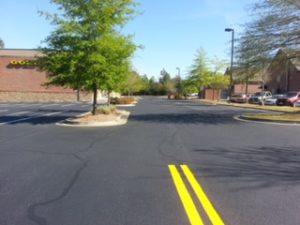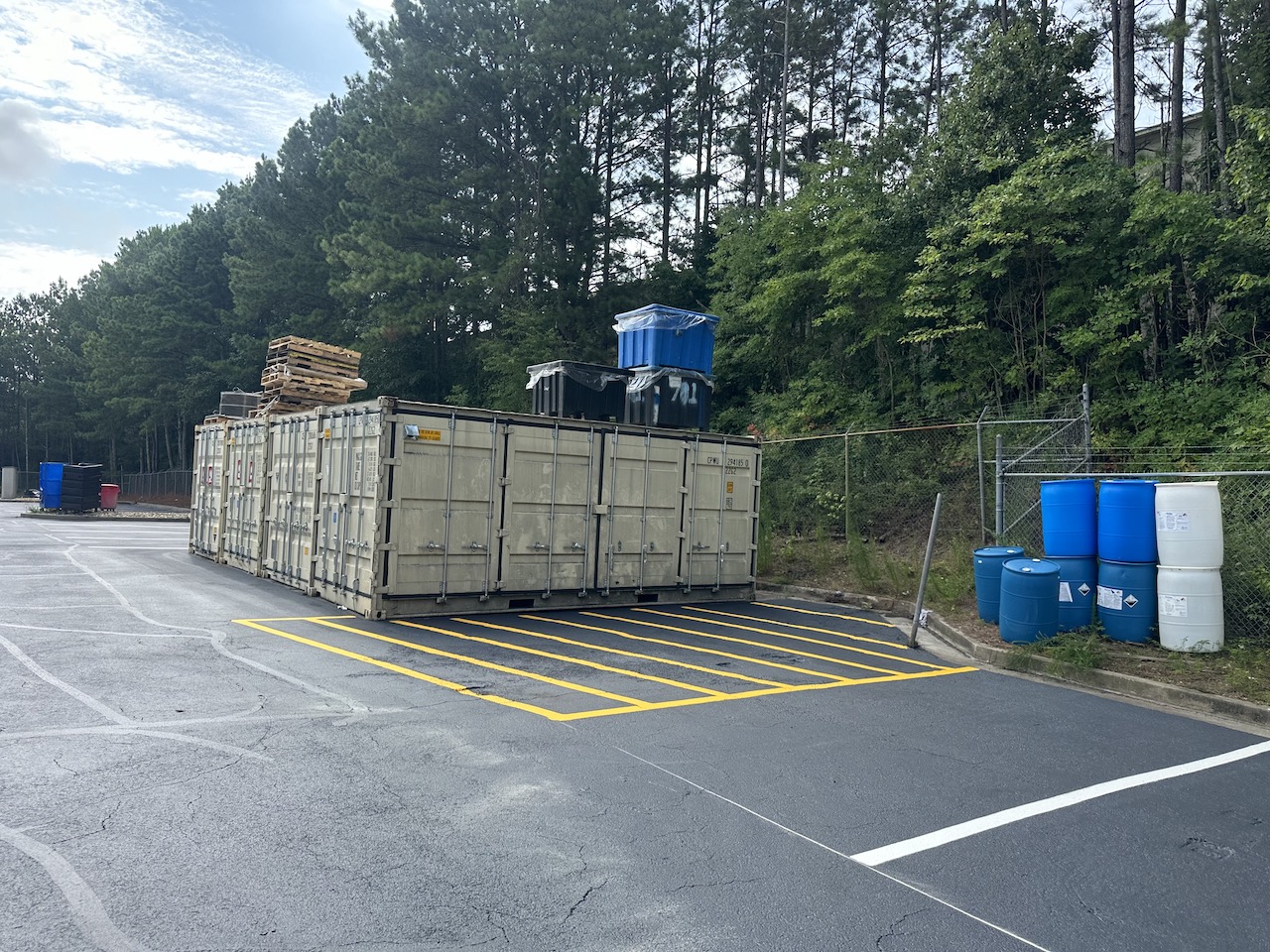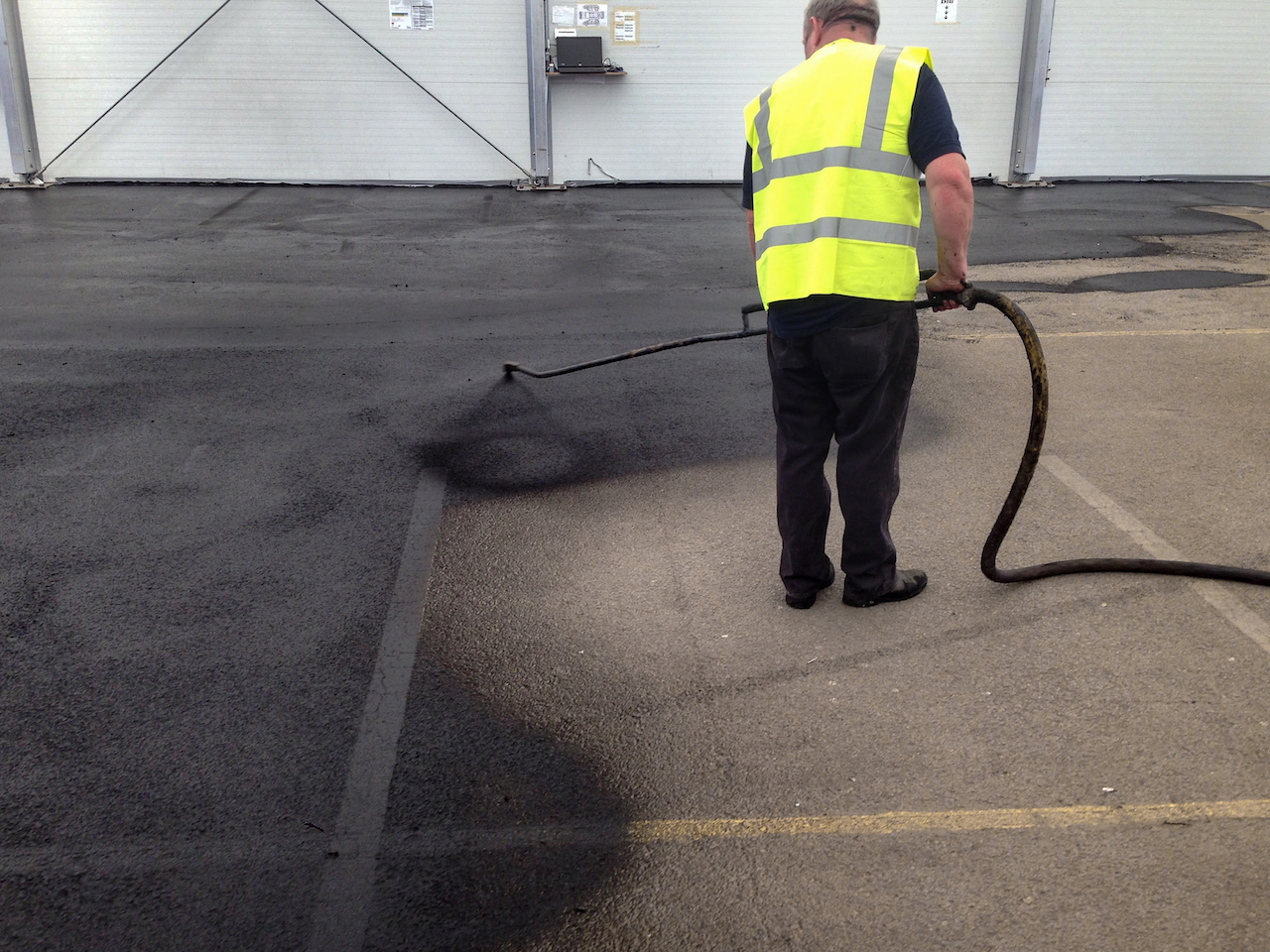
Emergency Winter Paving & Maintenance
What You Should Know About Winter Paving
Winter paving can be challenging, and it is a task that is best left to contractors who have the knowledge and the proper equipment to do the job correctly. Experience counts; there are several factors that the contractor must consider when planning a paving job during the winter months.
• Surface and ambient temperatures must be considered. North Georgia is not known for having many days with freezing temperatures, but temperatures do not need to be all that cold to cause issues when installing asphalt pavement. The real issue is the difference between the hot asphalt and the surface temperatures. When hot asphalt is spread over a cold surface, the heat rapidly transfers until an equilibrium is reached between the two materials. The greater the temperature differential, the faster the asphalt will lose its heat.
• If asphalt loses too much heat, it cannot be compacted adequately. Poor compaction will result in asphalt pavement that lacks the strength it needs to be durable.
• Asphalt pavement is constructed by installing multiple layers of asphalt mix and compacting each before the mix cools. The thinner the layer, the faster it will cool, making it more difficult to achieve adequate compaction. When paving in the winter, most contractors install thicker layers.
If you must have asphalt pavement installed in the winter, you can find contractors who can provide excellent results. Just be sure that you select a reputable, experienced asphalt contractor.
Tips for Avoiding Winter Paving
Frequently, winter paving becomes a necessity because the existing pavement has been neglected. For example, a property owner might think that his parking lot will last 20 years, but the pavement fails in 10 years due to cracks that have not been repaired or oil stains that have not been removed. If you want to avoid unpleasant surprises and lessen the possibility of requiring emergency winter paving, the following tips can help.
• Have cracks repaired promptly. Open cracks allow water to reach the foundation, robbing the pavement of its ability to support traffic. The loss of support can lead to subsidence, alligator cracking and potholes.
• Have fresh asphalt coating applied periodically. Sealcoating helps protect asphalt pavement from the ravages of UV rays and automotive fluids.
• Keep the pavement clean. Remove trash, piles of leaves and leaked automotive fluids regularly.
• Ensure that vehicle weights do not exceed the pavement’s design specifications. For example, if a residential street was built to carry only passenger vehicles, do not allow 18-wheelers to drive on the street.
MH Greeson Paving is an asphalt company and we work hard to help our customers obtain the longest possible life for their asphalt pavement. We provide asphalt repair, sealcoating, parking lot striping and pavement marking, bollards, traffic signs, car stops and asphalt paving to customers throughout most of North Georgia. We have an outstanding reputation for providing exceptional quality at affordable rates. If you would like a free estimate, call (770) 335-2983 or fill out the online form.




